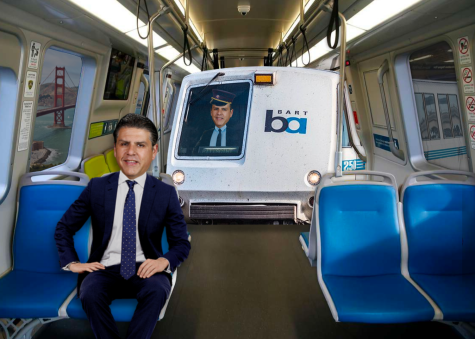



Former CSU Chancellor Joseph Castro received a $401,365 annual salary after failing to reprimand a former Fresno State University administrator for workplace misconduct.
Sep 7, 2022
Weeks before Joseph I. Castro became chancellor, he arranged a $260,000 settlement package, retirement benefits and a letter of recommendation for a now-former administrator at Fresno State University, where Castro served as president at the time.
That administrator, Student Affairs Vice President Frank Lamas, was found guilty of workplace misconduct following a formal Title IX complaint against Lamas in 2019. Castro, aware of these allegations, failed to reprimand Lamas and went on to nominate him for a lifetime achievement award before agreeing to a settlement with him.
Following the revelation of Castro’s doings earlier this year, Castro submitted his letter of resignation.
The brief letter read, “I hereby resign my position as Chancellor of California State University, effective at the close of business on February 17, 2022.”
After his resignation, the Board of Trustees gave Castro a $401,365 annual salary — $182,809 more than Gov. Gavin Newsom’s salary — according to the settlement agreement. Up until last month, Castro also received a $7,917 monthly housing allowance.
California State University’s Executive Transition program entitles executives to a one paid transition year after leaving office. His salary was calculated based on the midpoint of his final salary as chancellor and the maximum salary for a full professor.
Castro’s settlement classifies him as an advisor to the board, allows him to return to a teaching position and makes him available to the board and system executives on matters pertaining to the CSU.
Castro was also entitled to retreat rights following his transition period, which potentially allows him to be appointed as a tenured professor at Cal Poly San Luis Obispo. And although Castro currently resides in Long Beach, CSU will reimburse his actual moving expenses, if he chooses to assume the faculty position at SLO.
CSU has since halted the Executive Transition program after an LA Times investigation found the system paid millions to top executives since 2015 with little supervision of their work. Yet, Castro’s contract persists.
Here’s what Castro can do with his salary:
Pay for a year of tuition and fees for 53 full-time undergraduates

For the 2022-23 academic school year, tuition and mandatory fees for California-resident undergraduates equates to $7,522. This doesn’t include additional expenses such as books, housing and transportation.
Castro can pay the tuition and fees for 53 full-time undergraduates and have $2,699 leftover. Alternatively, he can cover a semester’s tuition for 107 students.
SF State’s Common Data Set from the 2020-21 school year reported that 14,151 (71.5%) undergraduate students were determined to have financial needs. 12,000 of those students weren’t awarded financial aid.
One month of his housing allowance alone can pay for a student’s tuition and fees for an entire academic year.
Cover the cost of books and supplies for 365 students
SF State estimates the cost of books and supplies to be $1,099 for the academic year. With Castro’s salary, he can cover the cost for 365 students.

Buy 160,546 cups of coffee from Cafe 101
There are a number of cafes on campus for coffee lovers to choose from. A medium house coffee from Cafe 101 is $2.50. With his salary, Castro can buy 160,546 cups of coffee, enough to keep him caffeinated for more than 5,500 semesters.
Buy 337,281 Cup Noodles from Village Market and Pizza
Cup Noodles is a cheap and convenient meal option for the “broke college student.” It cost $1.19 at the Village Market and Pizza convenience store on campus; Castro can buy 337,281 Cup Noodles with his salary.
According to the National College Health Assessment conducted last year, 41.8% of SF State students reported experiencing any level of food insecurity.
Castro would be able to eat 924 Cup Noodles every day of the year with a couple of cups leftover in his pantry for the days he’s feeling extra hungry.

Take 46,400 round trips on BART
SF State is a transit-first campus with a number of accessible public transportation options. Data from SF State’s 2018 Transportation Survey showed that 28% of students, faculty and staff reported using BART as a mode of transportation.

The Gator Transit Pass program benefits currently offer a 50% discount for BART rides to and from the Daly City Station. For a round-trip from Berryessa/North San Jose — the furthest BART station — to Daly City, it would cost $8.65 with the Gator Pass discount. Castro could afford 46,400 of them.
Pay for all parking permits for faculty and staff
In the same 2018 survey, 45% of faculty and staff reported arriving on campus in a single-occupant vehicle. That is equivalent to about 1,614 employees driving to campus.
For them, an average parking pass for the semester costs $215.59. Castro could pay for all 1,614 parking permits and be left with $53,402.74, which is higher than the average national income for an individual.

